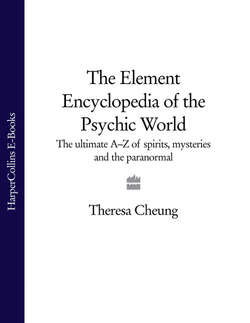Читать книгу The Element Encyclopedia of the Psychic World: The Ultimate A–Z of Spirits, Mysteries and the Paranormal - Theresa Cheung, Theresa Cheung - Страница 82
AVATAR
ОглавлениеDerived from the Sanskrit word avatora, which means ‘descent’, avatar is used in Hinduism to denote a god who has descended, by way of incarnation, to either human or animal form, coming into this world for the duration of one lifespan. An avatar is believed to be a mediator between people and the divine.
An avatar is similar to the Christian figure of an incarnated being but is different in two ways. First, a Hindu god can become incarnate in many places at the same time through partial avatars (amshas); second, the avatars do not fully participate in human activity or lose the knowledge and power of their divinity.
Exceptional holy men and women in India are called avatars. Hindus accept Gautama, Buddha, as an avatar. Vishnu, sky god and protector of the universe, is most famous for his numerous avatars, which include Krishna and Rama, but other gods, such as Shiva, also have avatars. Many charismatic leaders, such as the Indian mystic Chaitanya (c.1486-1533), have been regarded as avatars. In our own time, Ammachi - Mata Amritanandamayi -the South Indian woman who was given the Gandhi-King award at the United Nations in Geneva in 2002 for her promotion of non-violence, and who greets her long lines of followers by giving each person a warm hug, is considered an avatar of the Great Mother.
The bhakti (devotional) movements of Hinduism have often centred round avatars who are supposed to possess psychic abilities and paranormal powers, such as the ability to levitate or bilocate.
